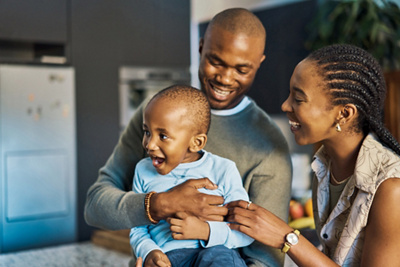Regularly monitoring the health and development of your baby, toddler, or child is essential.
Dr Heidi Ackermann, a paediatrician at Mediclinic George, discusses the when and why of checkups and hearing tests. ‘Babies, toddlers and children need regular checkups to ensure they’re healthy and growing well,’ says Dr Ackermann.
Checkup checklist It’s recommended that babies have a health check at the following ages:
- within 24 hours of being born
- 2-4 days after birth, if the baby is discharged home within 48 hours after birth
- 2-4 weeks
- 2 months
- 4 months
- 6 months
- 9 months
- 12 months
After the age of one, toddlers should have a checkup at the following ages:
- 18 months
- 2 years
- 2 ½ years
- 3 years
- yearly thereafter
What to expect
‘During these visits a physical exam is performed, and the doctor or nurse pays special attention to the child’s growth – weight, length and head circumference – and developmental milestones,’ explains Dr Ackermann. ‘The parents also have this opportunity to ask for advice, and the doctor or nurse can educate the parents regarding vaccinations, child safety, expected future milestones, and so on.’ ‘Not all visits need to be with a doctor,’ she continues. ‘Primary care nurse practitioners are well trained in child health and surveillance. Parents should be guided by their child’s doctor (GP or paediatrician) as to when specific health checks need to be done by a nurse, GP or specialist.’ For babies, regularly measuring weight gain against growth charts and monitoring developmental milestones is vital. ‘Abnormalities in weight gain and failure to reach specific milestones can be an indication of a possible underlying illness or congenital abnormality, which may warrant further investigations and/or treatment,’ explains Dr Ackermann.
Hearing tests
‘The American Association of Pediatrics recommends that all newborns undergo a hearing screening test before one month of age,’ says Dr Ackermann. ‘Unfortunately not all hospitals in South Africa offer in-hospital hearing screening test and patients are usually referred to a hearing centre or audiologist to perform the test. Surveillance for hearing problems should be done at every health checkup. It’s recommended that children undergo at least one more hearing test in childhood, and those with risk factors for developing a hearing problem should have a test on a more regular basis – every one to two years.’ Hearing tests are vital, especially since hearing impairment can present differently and often goes undetected. According to Dr Ackermann, possible signs of hearing impairment in infancy are:
- Not responding to loud noises
- Not responding to familiar noises, such as the mother’s voice
- Failure to say one or two words, for example ‘mama’ and ‘papa’, before the age of one year
Possible signs of hearing problems in childhood can be:
- Habitually turning the volume up on the television
- Delayed speech and language development
- Responding to somebody talking to them in their line of sight, but not when they can’t see the person talking to them.
The information provided in this article was correct at the time of publishing. At Mediclinic we endeavour to provide our patients and readers with accurate and reliable information, which is why we continually review and update our content. However, due to the dynamic nature of clinical information and medicine, some information may from time to time become outdated prior to revision.

